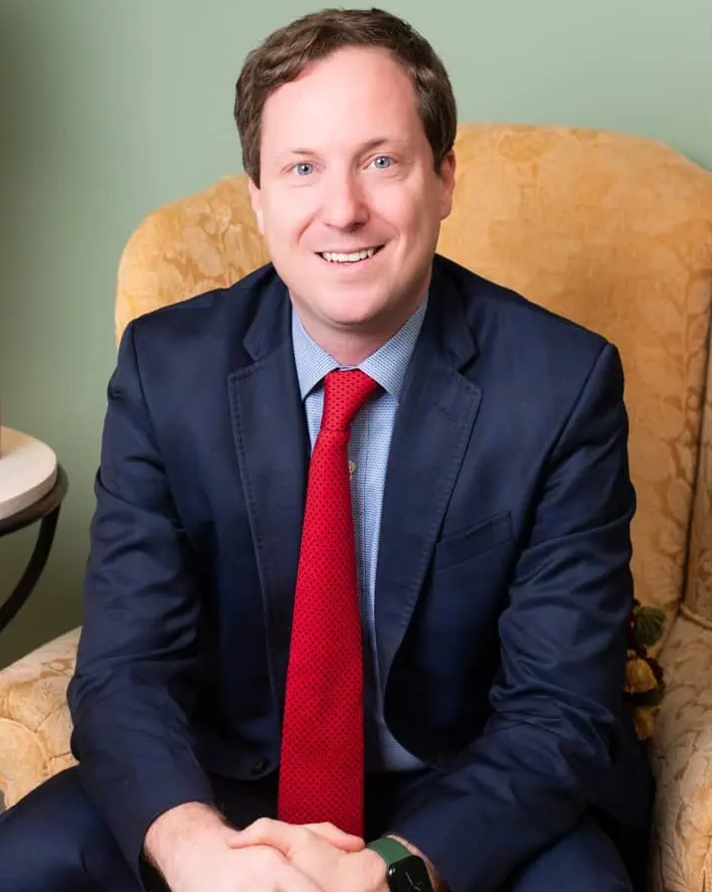Divorce is one of the most common and most feared life transitions. As per statistics, at least 2.4 per 1,000 population gets divorced, yet the process remains cloaked in stigma and dread. For Jay Henderlite, co-founder of Jacksonville-based family law firm Sasso Guerrero & Henderlite (SGH), that narrative needs to change.
“Two things people fear most about divorce are the social judgment and the uncertainty of what’s next,” Henderlite explains. “We’ve been conditioned to see divorce as a failure, and nobody likes to fail. On top of that, uncertainty is the natural part of loss; people assume life after divorce has to be worse, even though that doesn’t have to be true.”
Henderlite has built his practice around challenging that assumption. In his view, divorce is not the end of a story but the beginning of a new one. By helping clients move past fear and outrage, he guides them toward choices that preserve dignity, reduce conflict, and create a foundation for growth.
Family law is often avoided by attorneys who see it as a profession defined by conflict. “A lot of lawyers think all we do is act as megaphones for people’s outrage,” Henderlite says. “That turns many off. It’s easier to litigate a car accident, you argue who ran the red light, you get the facts, and you move on. In family law, you’re dealing with subjective dynamics of people’s lives that are ongoing.”
Subjectivity makes the work harder, but also more meaningful. Decisions about custody, parenting, and finances involve competing perspectives on what “better” looks like. One parent may be stronger at enforcing routines, another better at providing emotional support. Both matter. “Even if one parent is objectively better at certain things,” Henderlite notes, “that doesn’t mean the child won’t benefit from having the other parent involved.”
Too often, Henderlite says, family lawyers fall into the trap of telling clients what they want to hear, fueling outrage and promising retribution. “That might get someone to sign with you, but it does them a disservice,” he says. “You’re basically making permanent what should be a temporary emotional response.”
That dynamic is reinforced by media portrayals of divorce as warfare: take them for everything, get your justice, win at all costs. “It just doesn’t work that way,” Henderlite explains. “The court isn’t a place for vengeance. It’s about dividing assets, creating custody arrangements, and moving forward. If you make it about punishment, you end up prolonging pain, spending more money, and making life harder.”
Instead, SGH advocates for a different approach, one rooted in clarity, agency, and forward motion.
When clients first arrive, Henderlite sees the fear behind their anger. His solution: concrete steps to reclaim control. “When you’re overwhelmed, what helps is having something specific to do,” he says. He often assigns what he calls “homework.”
“I’ll ask clients to write down one thing that will make their life better in a week, then a month, then three months, then a year. It shifts the mindset from paralyzing fear of the unknown to goals you can identify and work toward. That’s how you get your agency back.”
The key, he cautions, is not to confuse agency with destruction. “Burning down your life doesn’t make things better. It never does. You might think it will, but it doesn’t. What does make things better is identifying meaningful changes and taking one step at a time.”
The stigma around divorce, Henderlite believes, is one of the biggest hurdles people face. “We’ve been taught that if a marriage ends, someone has failed,” he says. “But marriages don’t fail, they end. Sometimes they weren’t built on a strong foundation. Sometimes people change. Sometimes it’s health, sometimes it’s circumstances. It doesn’t matter. In Florida, if one person wants out, the marriage is over. That’s reality.”
By the time people reach Henderlite, many have already wrestled with moral or religious dimensions alongside therapists or clergy. His role is helping them navigate the practical and emotional uncertainty that comes next. “It’s not doomsday unless you make it one,” he says. “The problems you have won’t vanish, but you’ll learn to manage them differently. And that can be a fresh start.”
For Henderlite, reframing divorce is more than a legal strategy; it’s a philosophy of practice. Family law, he says, is unique because the facts never stop changing, clients are living through evolving family dynamics while the case unfolds. That makes it essential for lawyers not just to react, but to guide.
“We’re not just technicians applying statutes,” he says. “We’re working with people in real time as they process one of the hardest chapters of their lives. My job isn’t to amplify outrage, it’s to help clients think clearly, make decisions from a better headspace, and walk out of this with the tools for a healthier future.”
In that sense, divorce isn’t an ending at all. As Henderlite puts it: “It’s a transition. And like any transition, it can be a turning point toward something better.”
This article is an opinion piece for informational purposes only. Florida Reporter and its affiliates do not take responsibility for the views expressed. Readers should conduct independent research to form their own opinions.








